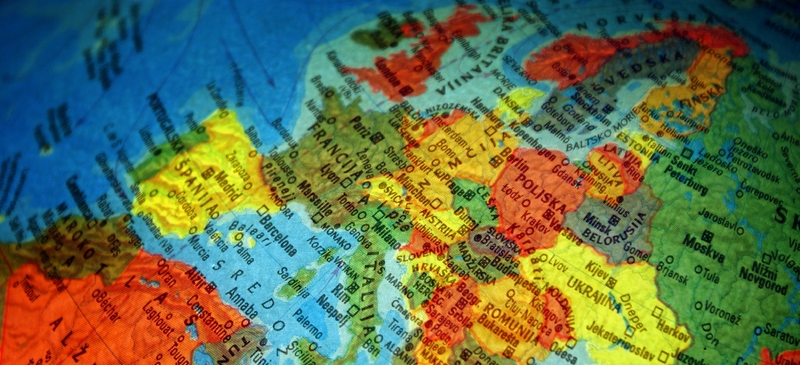
Europe must do more to embrace its neighbours
The enlargement of the European Union has lost momentum. Bulgaria and Romania will enter the EU in January, but there is then likely to be a long gap before any other country joins. The EU has used the accession process as its main method to promote economic and political reform in its neighbourhood. But now it needs new methods.
Germany, which takes over the EU presidency next month, has promised that a new “European neighbourhood policy” will be a priority. Such a policy is urgently needed. A key challenge for the EU next year will be to build stronger ties with neighbours that are not on the road to membership.
The EU cannot afford to be indifferent to the arc of instability that runs from Belarus to North Africa, passing through Ukraine, Moldova, the western Balkans, the Caucasus and the Middle East. Unless the EU takes responsibility for steering its neighbourhood towards prosperity and good governance, it risks paying a heavy price. Political instability, religious extremism, ethnic conflict, organised crime and illegal immigration could all spill over from the neighbourhood to the union and in some cases already are.
The EU’s current neighbourhood policy, in place since 2004, is proving inadequate. It involves the union negotiating an “action plan” with each neighbour, promising trade, aid, political contacts and participation in EU programmes – though not membership – in return for a series of specified reforms. Action plans with Armenia, Azerbaijan, Georgia, Israel, Jordan, Morocco, Moldova, the Palestinian Authority, Tunisia and Ukraine have already been agreed.
Several such plans have been modestly successful. Ukraine has adapted some laws and standards to be closer to those of the EU and will gain an easier visa regime. Morocco and Moldova have improved border controls. Jordan, Morocco and Tunisia have set up forums on governance, democracy and human rights. But the ENP has failed to transform neighbours in the way the accession process transformed much of eastern Europe.
The carrots held out by the EU are not juicy enough to motivate political elites to undertake many of the painful reforms required.
Although the EU cannot feasibly promise membership to neighbours, it must offer them a more attractive package. Germany plans to integrate neighbours with EU energy markets and transport networks. The Commission has approved a scheme to offer Ukraine and other neighbours “deep free trade”. That would mean scrapping not only tariffs but also some nontariff barriers to trade and investment.
The union should go further. It should offer the best-performing neighbours partnerships in the Common Foreign and Security Policy (CFSP). If countries such as Georgia and Ukraine make steady progress towards becoming liberal democracies, the EU should ask them to send diplomats to the Council of Ministers in Brussels. They would take part in discussions on policies of common interest, such as Black Sea security, non-proliferation, counter-terrorism and illegal immigration. The partners would help to shape EU policy but, not being members, could not vote on it. Once EU governments had decided a policy, the partner would be free to sign up to it, or not.
Such partners would gain several benefits. Their politicians and bureaucrats would learn about the EU’s ethos of compromise. These neighbours would find it much easier to adopt the acquis communautaire in foreign policy – much of which is declarations – than in other areas, such as the single market. Above all, joining the CFSP would make countries such as Ukraine and Georgia feel a little safer. Many Georgians and some Ukrainians view Nato membership as the best guarantee of their security. But since that goal remains a distant prospect, they may favour closer security ties with the EU as an interim step.
The EU should offer the same deal to candidates for membership, such as Turkey, which are excluded from talks on CFSP. Of course, there would be a risk that too many governments around the table could slow decision-making. So the scheme should begin with a few chosen topics. If it worked well, the EU and the partners could extend it to more policy areas. In any case, if EU governments found neighbours and candidates were being obstructive, they would be free to move ahead and take their own decisions.
Such ideas to strengthen neighbourhood policy will only work if they are seen as “membership neutral”. Some Georgians and Ukrainians will sniff at any offer that does not mention the goal of membership. But when they realise that membership is not on the cards for the foreseeable future, they may welcome other ways to move closer to the EU. Similarly, some members hostile to enlargement will be reluctant to give neighbours a status that could be seen as a stepping stone to membership. But in time they may see that the union has a strategic need to foster reform in its neighbours and that it must therefore give them a closer embrace.
